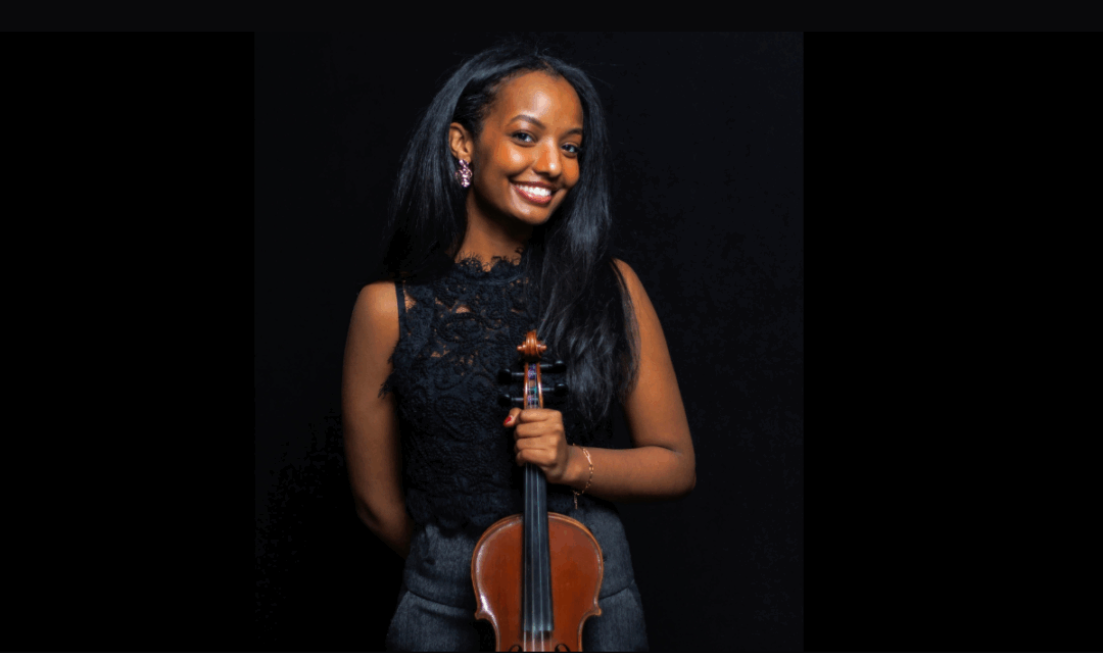Valedictorian, McCall MacBain Scholar, and TikTok star: Alador Bereketab on her McMaster experience

As Alador Bereketab graduates from the Honours Health Sciences Program, she looks back at her experiences with the Black Student Association, becoming a McCall McBain fellow and a spark of internet fame.
Alador Bereketab has spent the past four years at McMaster not only excelling in the classroom, but building spaces that didn’t previously exist — for herself, and for others.
When Bereketab graduates from the Honours Health Sciences Program (HHSP) this week, she will do so as valedictorian, a recent recipient of the McCall MacBain Scholarship, co-founder of the McMaster Black Health Conference, a key figure with the Black Health Sciences Association and, for a moment, a TikTok star.
Bereketab shares her motivations for pursuing health sciences at Mac, what’s coming next in her journey, and how her time at McMaster helped her lay the foundation for what’s still to come.
What brought you to McMaster?
There were other programs that were pulling me in other directions, but what stood out about McMaster was the Honours Health Sciences program. I’m someone who learns through curiosity, connection, and application.
I love to think outside the box and I think that problem-based learning appealed to me. I think that’s similar to the path that I’m heading on.
The path that I’m choosing is one that I didn’t have all the answers to in front of me, , but I was excited. I’ve tried to hold on to that energy and let it guide me.
You’ve been involved with several groups here at McMaster, even co-founding the Black Health Conference. How important have these initiatives become for you?
Throughout my undergrad, I’ve made a very intentional and conscious effort of prioritizing and creating mentorship opportunities with the alumni, with the current students and creating a support system and a network within the Black Student Association.
We started a two-day event, which is called the Black Applicant Info Session. I think I sent emails to over 58 Black graduation coaches across Canada. We got to see so many students come here and just start conversations. To see students leave that space and say, “You know what, I actually think I can apply,” or “I know how to navigate this space a little bit more than I did before,” — those moments are powerful.
We founded the Black Health Conference in my second year as a way to highlight Black perspectives in healthcare and research. Our slogan, “Better than Yesterday,” reflects a commitment to progress through community: Not just addressing gaps, but actively paving the path for those who come next.
At its heart, the conference was about mentorship, visibility, and creating a platform where students across disciplines could come together, be seen, and begin imagining what health equity could truly look like.
You were recently selected to receive a prestigious McCall McBain Scholarship — Canada’s largest leadership-based scholarships for master’s and professional studies. How does it feel?
It’s been surreal in the best way. It’s been such a journey throughout my fourth year. We had regional interviews. I got to go to Montreal for the final interviews, and I got to meet so many incredible people, many of which I’m still friends with right now and excited to meet in August during the retreat.
Receiving it reminded me that the work I’ve been doing, there’s space to continue building in new spaces.
Can you tell us about what your plans are now that you have your scholarship?
As of right now, the plan is I’ll be doing a master’s in Family Medicine at McGill University. My focus is on medical education, particularly around curriculum development and equitable care.
I’m currently working on research that explores how we can co-design shared decision-making tools that centre the experiences of Black patients and underserved communities.
What advice do you have for learners beginning the Honours Health Sciences program?
Believe in yourself and surround yourself with people who believe in you. I think what I’ve learned, even just about my personal journey, is that when you have professors, supervisors, friends, community, groups and mentors that see you and your potential fully — that is something that is so important to hold on to.
Having people in your corner that believe in you rather than deter your vision can help, but even they can also help to challenge you.
Can you tell us about a stand-out moment from your time at McMaster?
The McMaster African Student Association was doing Afrofest for the first time and they asked: “Can you play violin? Maybe you can be a part of the show.” And so, for the first time, I worked on a piece which was Last Last by Burna Boy on violin.
That really opened the floodgates when it came to music and how music could be a part of my life currently. That video on TikTok went viral and then from there people started requesting, “Can you play this at my wedding? Can you play at Black graduation? Can you play at the alumni gala?”
There have been so many different events that I have played at over the past few years — I think over 40 events now. It’s become a way to bring joy and culture into spaces where people don’t usually expect to hear Afrobeats on a violin.


